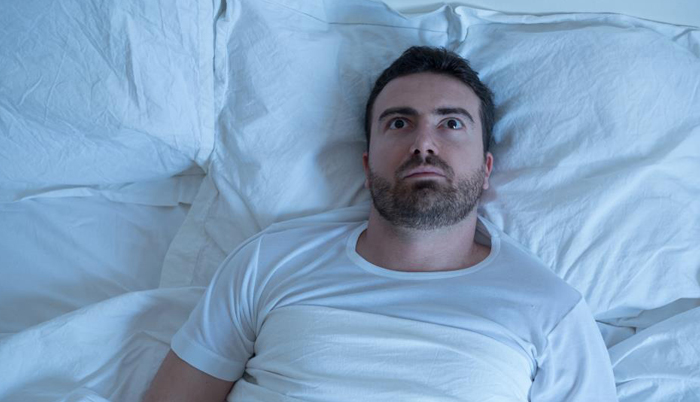![]() Home > Lifestyle
Home > Lifestyle
Sleep Is Good For Your Heart, Reduces Risk Of CVD, According To Study

News Target | Natural News
![]() May 4th, 2024 | 09:28 AM |
May 4th, 2024 | 09:28 AM | ![]() 865 views
865 views
NATURAL NEWS
Sleep is an important part of a person's day, yet many people are sleep-deprived, which increases their risk of many health problems. Having a good night’s sleep on a regular basis can prevent cardiovascular disease (CVD) like atherosclerosis, according to a study published in the journal Nature. In the study, researchers found a hormone in the brain, which controls wakefulness, that plays a role in preventing CVD.
Atherosclerosis is the buildup of fats, cholesterol, and other substances inside the arteries, causing them to narrow and stiffen. It can lead to other conditions, such as coronary heart disease.
Researchers from Massachusetts General Hospital (MGH), together with colleagues from other research centers, investigated how lack of sleep increases the risk of atherosclerosis. To do this, they genetically predisposed mice to develop atherosclerosis by allowing half of them to sleep well and interrupting the sleep of the other half.
The results showed that the sleep-deprived mice developed larger arterial plaques and had higher levels of monocytes and neutrophils – inflammatory cells that contribute to atherosclerosis – in their blood vessels compared with the mice that slept well. These occurred in the sleep-deprived mice even though there were no changes in their weight, cholesterol levels, or glucose tolerance.
"We have discovered that sleep helps to regulate the production in the bone marrow of inflammatory cells and the health of blood vessels and that, conversely, sleep disruption breaks down control of inflammatory cell production, leading to more inflammation and more heart disease," said Filip Swirski, Ph.D., of the MGH Center for Systems Biology and senior author of the study.
The researchers also found that the sleep-deprived mice produced twice the amount of a certain type of white blood cell in their bone marrow, and the hypothalamus of their brains produced less of the wakefulness hormone called hypocretin. They found that hypocretin controls white blood cell production in bone marrow by regulating CSF-1, which is a type of signaling protein. When the researchers supplemented sleep-deprived mice with hypocretin, atherosclerosis developed more slowly.
Based on these findings, the researchers concluded that the increase in white blood cells and acceleration of atherosclerosis in the sleep-deprived mice were due to the decrease in hypocretin and increase in CSF-1. The authors suggested that getting enough sleep could prevent atherosclerosis by regulating hypocretin production in the hypothalamus.
Short and interrupted sleep is associated with a greater atherosclerosis risk
The MGH study wasn’t the first one that linked lack of sleep to atherosclerosis. A Spanish Progression of Early Subclinical Atherosclerosis (PESA) study revealed that short and interrupted sleep is associated with an increased asymptomatic atherosclerosis risk, which silently hardens and narrows the arteries. The PESA study was presented at the 2018 European Society of Cardiology (ESC) Congress.
Researchers recruited 3,973 healthy middle-aged adults who wore a wristband activity monitor for a week to record their sleep quality and quantity. The researchers assessed atherosclerosis in the participants’ leg and neck arteries using 3D ultrasound.
The results showed that participants who had less than six hours of sleep were at a greater risk of having multiple sections of arteries with atherosclerosis than those who had enough sleep. In addition, participants who had short or disrupted sleep were more likely to develop metabolic syndrome – the combination of diabetes, high blood pressure, and obesity – and follow an unhealthy lifestyle.
Tips for sleeping well at night
Having difficulty getting a good night’s sleep? Here are several things you can do to help you sleep better:
Have a sleep schedule – Try going to sleep and waking up at the same time every day, even on your days off.
Get enough daylight exposure – Go outside in daylight for at least 30 minutes every day. Sunlight is the greatest source of blue light, which regulates circadian rhythms.
Reduce blue light exposure – Blue light emitted from gadgets could increase the risk of sleep problems.
Exercise more and eat healthily – Your physical activity levels and your diet may improve your sleep. (Related: 5 Plant-Based Foods to Help You Sleep.)
Try mindfulness meditation – Mindfulness meditation, which promotes mental focus and reduces stress, can help manage sleep issues.
Source:
courtesy of NATURALNEWS
by Melissa Smith
If you have any stories or news that you would like to share with the global online community, please feel free to share it with us by contacting us directly at [email protected]